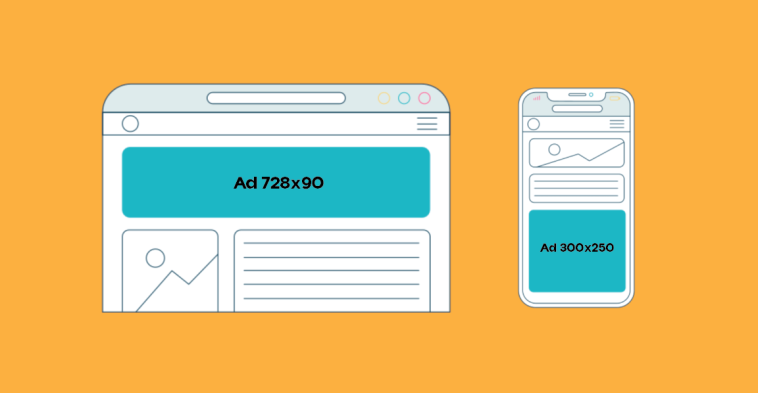Choosing the right ad network for your business can feel overwhelming, can’t it? With so many options and features to consider, it’s easy to get lost in the sea of possibilities. But finding the perfect fit doesn’t have to be daunting—it’s all about knowing what to look for and understanding how each network aligns with your goals. Whether you’re aiming to maximise revenue, reach a specific audience, or optimise ad performance, having a clear strategy makes all the difference.
What Do You Need From an Ad Network?
Before diving into the details, ask yourself: What is my primary goal? Some businesses are laser-focused on monetisation, while others are prioritising audience engagement or brand awareness. Your answer will shape the criteria you use to evaluate networks. For example, are you trying to generate clicks, boost impressions, or drive purchases? Being clear on your objectives upfront will help narrow down the options and prevent you from wasting time on unsuitable platforms.
Think about your audience too. Where are they spending their time? What types of ads resonate with them? Understanding your audience’s preferences and behaviours is essential when comparing the best ad networks and selecting one that can deliver meaningful results.
Features to Look For
When comparing ad networks, you’ll quickly notice they each offer a unique set of features. Here are the top ones to consider:
- Targeting Capabilities – The best networks allow precise targeting, from demographics and location to interests and behaviours. This ensures your ads are shown to the right people at the right time.
- Ad Formats – Look at the variety of formats available. Options like banners, native ads, video ads, and interstitials give you flexibility to choose what works best for your content and audience.
- Ease of Use – A user-friendly dashboard and clear reporting tools can save you a lot of headaches. If managing campaigns feels like a chore, it might not be the right fit.
- Support and Resources – Check what kind of support the network offers. Is there live chat, email assistance, or a comprehensive knowledge base? Good support can make a big difference when troubleshooting or optimising campaigns.
- Global Reach – If your audience spans multiple regions, you’ll want a network with broad reach and localisation options.
By focusing on these features, you’ll have a better sense of which networks align with your needs.
Metrics That Matter
Metrics are where the magic happens—they give you tangible insights into whether an ad network is performing well. But which ones should you be paying attention to?
- Click-Through Rate (CTR) – A high CTR indicates your ad is engaging and relevant to the audience.
- Cost Per Click (CPC) – Keeping an eye on CPC ensures you’re staying within budget while driving traffic.
- Impressions – This measures how often your ad is shown. While impressions alone don’t guarantee success, they’re a good indicator of reach.
- Conversion Rate – Ultimately, conversions (whether that’s purchases, sign-ups, or downloads) are what matter most. Track this to see if your ads are driving meaningful actions.
- Return on Ad Spend (ROAS) – This metric shows how much revenue your ads are generating relative to what you’re spending. A positive ROAS is a clear sign of success.
Balancing Cost and Value
One of the trickiest parts of comparing ad networks is evaluating costs. It’s not just about finding the cheapest option—it’s about getting the best value for your money. Think about what you’re getting in return for the investment. Are the targeting options more advanced? Is the network known for delivering higher-quality traffic? Sometimes paying a little more upfront leads to better long-term results.
Also, consider whether the network offers flexible pricing models. Some charge per click or impression, while others use revenue-sharing agreements. Choose the model that aligns with your goals and budget.
Evaluating Results Over Time
Choosing an ad network isn’t a one-and-done decision. Once you start running campaigns, keep evaluating performance. Are you reaching your audience effectively? Is the traffic high-quality, or are you seeing a lot of bounces? Regularly reviewing your metrics will help you spot trends and identify areas for improvement.
It’s also worth experimenting. Test different ad formats, targeting options, and even networks to see what drives the best results. The key is to stay flexible and open to optimisation.
Building Relationships with Networks
Here’s something many people overlook: the relationship you have with the ad network itself. If you’re struggling to get help or the support team feels unresponsive, it might be time to explore other options.
Your Next Steps
So, where does all this leave you? Start by defining your goals and understanding your audience. Then, look for networks with the features and metrics that align with your needs. Don’t be afraid to dig into the details—ask questions, test different platforms, and pay close attention to results.
Remember, the perfect ad network isn’t just the one with the flashiest features or the lowest costs. It’s the one that helps you reach your goals effectively while providing a positive, collaborative experience.





